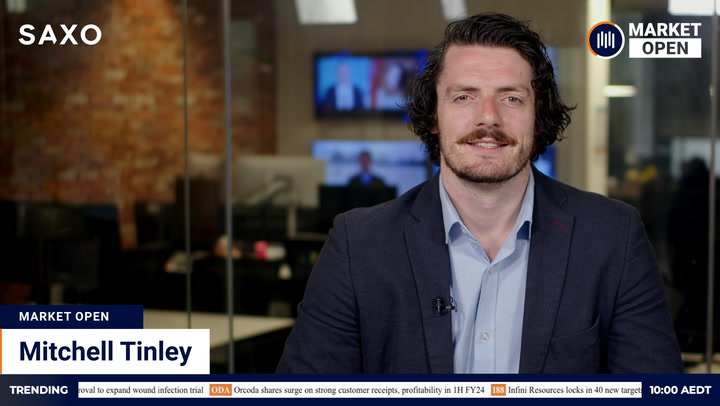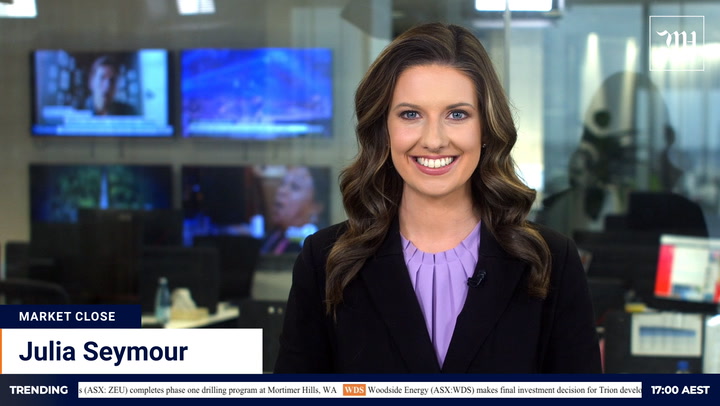A new quarter brought no relief from the volatility that has dogged the Australian share market since its mid-August peak.
A day after its biggest rise of the year, the S&P/ASX 200 handed it all back, plus some more. The index dived 159 points or 2.17 per cent this morning towards a fourth straight weekly loss and one of the heaviest falls of the year.
All 11 sectors declined. Nineteen of the heavyweights of the ASX 20 index fell. Gold stocks filled most of the top slots on a very short list of winners.
What’s driving the market
Institutional investors wasted no time dismantling yesterday’s end-of-quarter “window dressing”. A 136-point rally yesterday served its purpose by securing an improbable gain for the quarter of 0.2 per cent despite a torrid September. Bonuses safely secured, portfolio managers felt free to offload today.
Wall Street added urgency to the sell-off with a grim end to its worst month since the initial pandemic market collapse. The S&P 500 shed 1.19 per cent overnight and the Dow 1.59 per cent. The Nasdaq dropped 0.44 per cent to a fifth straight loss.
“A long list of worries caught up with Wall Street on the final day of the month, including inflation fears, coronavirus concerns, instability in China’s real estate market and expectations of central bank tightening its monetary policy support sooner than expected,” Kalkine Group CEO Kunal Sawhney said.
US futures wilted this morning despite news President Joe Biden signed off on a bill to avert a government shutdown. S&P 500 futures slumped 24 points or 0.55 per cent.
“While Congress has recently passed a temporary funding bill to prevent government shutdown, it is yet to raise the debt ceiling,” Mr Sawhney said. “There are growing fears that any failure to raise the debt ceiling before mid-October might result in economic damage, job losses, and a stock market slump.”
The ASX 200 peaked on August 13 and has since retreated roughly 5.5 per cent. However, context is important: the index surged 73 per cent from its pandemic low in March 2020 to tis August top. Even at today’s level, investors are still sitting on a gain of 64 per cent.
The market has come off its high during a seasonally weak time of year when valuations are impacted by the payout of billions of dollar in dividends. This year included record payments from some of the major miners. Wall Street, too, struggled last month. The S&P 500 dropped 4.8 per cent, its worst monthly result since March 2020. The Dow shed 4.3 per cent and the Nasdaq 5.3 per cent.
“September lived up to its reputation and dented stock portfolio returns, but not too badly,” Ed Yardeni of Yardeni Research said.
Going up
Gold stocks provided a rare pocket of strength, mirroring a 2 per cent rally in a US gold mining benchmark overnight. Northern Star climbed 3.12 per cent, Silver Lake Resources 3.54 per cent, Gold Road Resources 2.09 per cent and Newcrest 0.66 per cent.
The domestic gold sub-sector hit a pandemic low on Wednesday, but has since risen for three days. Overnight, gold for December delivery rallied US$34.10 or 2 per cent to US$1,757 an ounce.
Evolution Mining rose 2.44 per cent after the NSW government greenlit an extension to the company’s Cowal mine near West Wyalong. The underground extension will extend the mine’s life to 2040 and create 160 new jobs during construction and 230 long-term jobs once in operation.
The best of the rest were Whitehaven Coal +2.79 per cent, Flight Centre +1.49 per cent and SkyCity +1.49 per cent.
Going down
The financial sector spearheaded the retreat as gains this week from an improvement in long-term interest rates evaporated. Commonwealth Bank skidded 4.27 per cent, ANZ 2.79 per cent, NAB 2.71 per cent and Westpac 2.67 per cent.
The mining majors fared little better despite iron ore’s sixth rise in seven sessions. Rio Tinto slid 3.51 per cent, Fortescue Metals 2.47 per cent and BHP 2.39 per cent.
The sinking tide lowered nearly all boats. The index’s biggest losers came from all corners of the market: fast-food giant Domino’s Pizza fell 7.58 per cent, oil company Beach Energy 6.02 per cent, UK banking group Virgin Money 5.94 per cent, miner Mineral Resources 5.47 per cent and plumbing supplies specialist Reece 5.33 per cent.
Pro Medicus eased 0.93 per cent during a tough session for healthcare companies despite a US subsidiary securing a seven-year $40 million contract with Novant Health. The deal is the health imaging company’s seventh in North America in a year and a half.
Healthcare heavyweight CSL fell 2 per cent, Ramsay 2.05 per cent and Sonic 2.21 per cent.
Cimic has also been racking up contract wins. The construction company’s UGL was awarded a contract worth $297 over seven years to design and manufacture diesel electric trains for Pacific National. Shares in the company dipped 0.1 per cent.
Other markets
Asian markets retreated amidst reports China’s troubled Evergrande property group missed another debt repayment. The Asia Dow slid 1.33 per cent. Japan’s Nikkei gave up 2.07 per cent. Markets in Hong Kong and mainland China were closed for holidays.
Gold trimmed an overnight rally, easing US$1.60 or 0.1 per cent to US$1,755.40 an ounce. Brent crude dropped 16 US cents or 0.2 per cent to US$78.15 a barrel.
The dollar eased 0.05 per cent to 72.25 US cents.








